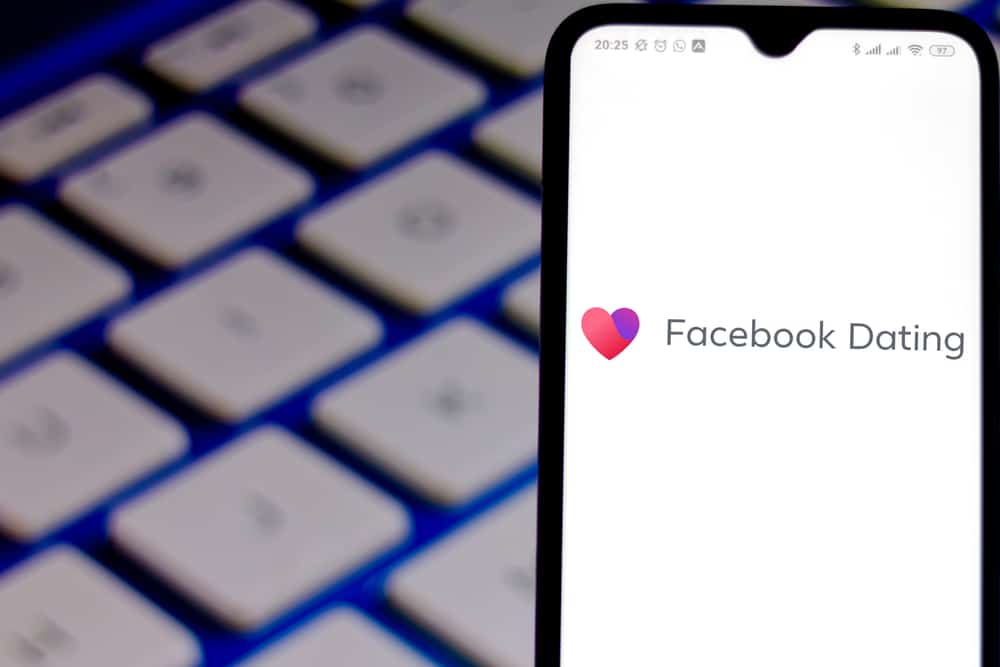How to Become a Private investigator
Michelle Wilson - October 8, 2019

So, you’re ready to investigate how to become a private investigator? Or maybe you want to know if this career path is right for you? This article will help save you time and provide the answers you need.
If you have a knack for gathering information, finding things, sorting clues, and solving problems, you may have the skills to become a private investigator.
A private investigator is a professional that specializes in finding missing things or people, acquiring confidential information, and solving crimes. You can become a private investigator to work for yourself or collaborate with law enforcement agencies on cases.
Table of Contents
What Does a Private investigator Do?
Private investigators have specializations, like lawyers and doctors, within their field. If you want to become a private investigator, it’s best to know what aspect of private investigating you’d like to specialize in.
Some private investigators have multiple specialties so that they can offer various services to a broader range of clientele. It all depends on your talent, training, and resources.
The most common services offered by private investigators are background checks and civil investigations. Others may serve as consultants to law enforcement agencies or corporations. Law enforcement even hires some private investigators to perform undercover work on their behalf.
You can also be hired to carry out surveillance, search for clues in a crime scene, and when necessary, testify in court.
Companies and private individuals also commonly hire private investigators to perform pre-employment verifications, provide security to high profile individuals or valuable objects, investigate legal, financial and domestic matters, and more.
It’s a far-reaching job that requires a flexible mind, patience, tenacity, persuasive communication skills, an eye for detail, and a knowledge of the law.
Most modern private investigators have found ways to use technology to their advantage and get results faster. For example, with search tools like CheckPeople.com, a private investigator can run a basic background check on any individual in the US and get results in minutes.
Steps to Become a Private investigator
If you want to become a private investigator in any state in the US, you need first to find out what the licensing requirements of that state are. These requirements share similarities from state to state but can also vary among individual states.
Because the requirements to become a private investigator varies among states, we’ll look at just the general steps needed to become a licensed private investigator in the US:
Gather Information about State Licensing
Each state in the US typically has private investigator licensing boards that are authorized to monitor and regulate the process of getting a private investigator’s license. These boards oversee the license applications of both private investigator agencies and individuals.
Each Private investigator licensing board operates under a principal state agency. For instance, the Texas Department of Public Safety is the primary agency that governs the Private Security Board, which is responsible for issuing Texas private investigator licenses.
In Tennessee, the Department of Commerce and Insurance governs the Private Investigative and Polygraph Commission, which is directly responsible for issuing private investigator licenses in the state.
But not all states have a statewide licensing process. States in this category instead have specific licensing requirements that a private investigator in certain cities or jurisdictions needs to fulfill. If not, they won’t get a private investigator license to practice in that state legally.
And if you are wondering whether a private investigator licensed in one state can practice in another, the answer is yes, but not in all instances. Some states have reciprocity agreements in place, which allow private investigators to conduct business in another state if it’s a party to the agreement.
However, this option is only allowed if the investigation originated in the state where the private investigator is officially licensed, and not the other state.
Currently, the only US states that are a party to the reciprocity agreement are Florida, Louisiana, California, Georgia, North Carolina, Tennessee, Oklahoma, and Virginia.
So, before you choose a state where you’d like to be licensed and practice, be sure to verify that the state’s regulations are in line with your private investigator career goals.
Achieve the Minimum Requirements
Whether or not you can become a licensed private investigator, will be determined by if you possess the minimum requirements. Depending on the state you choose to become licensed, you may be able to eventually achieve the minimum requirements and successfully apply for a private investigator license.
Some states require that an applicant be at least 21 to 25 years of age. Other minimum requirements include:
- Be a U.S. citizen, or at least a legal U.S. resident
- Must not have been dishonorably discharged from the U.S. military
- Must possess a GED certificate or high school diploma
- Must not have any felony or other past criminal convictions, or history of moral depravity
Individuals dishonorably discharged from the military may appeal that decision and then apply to be a private investigator. People with criminal records, if they successfully have their criminal record expunged, may then apply for a private investigator’s license.
Gain the Required Experience and Education
Each state has different requirements when it comes to minimum education and experience required to become a private investigator. Certain states even allow candidates to substitute some educational requirements with work experience.
Although most states don’t require a bachelor’s degree, many aspiring private investigators pursue an associate degree in criminal justice or a similar field. It might not be a mandatory requirement, but it does provide a private investigator with a working knowledge of the criminal justice system. This knowledge is useful if you aim to specialize in civil or legal investigations or consult for law enforcement agencies.
The minimum experience required also differs from state to state. For instance, in Oklahoma and some other states, no experience is necessary if you complete the CLEET (Council on Law Enforcement Education and Training)-approved training.
In states like New Hampshire, you must have four years’ relevant experience. But if you have an associate’s or bachelor’s degree in criminal justice, only two years’ experience is required.
What counts as relevant experience to qualify for a private investigator license include:
- Law enforcement officer for a state, federal, or local police department
- Claims investigator
- An adjuster
- Risk manager
- Head/Director of security for a company, or licensed security service.
Pass the State Private Investigator License Exam
No one enjoys taking exams. But they are a hurdle that you might need to cross before you can get your private investigator license.
Twenty-two states require passing a state exam before you can get your private investigator’s license. Three other states offer alternatives to taking an exam to get your license.
The exam is typically a state jurisprudence examination that tests candidates on their knowledge of applicable state laws and procedural protocols.
Some other states require that you take a Private investigator Skills Assessment before becoming a private investigator. The test covers topics like:
- Manufacturing evidence
- Transmission tracking
- Courtroom testimony
- Perjury
- Proper identification
- Report writing
- Obtaining and researching public information
Get Firearms Training
Not all states allow private investigators to carry a weapon. But in the states that do, you’ll be required to obtain mandatory firearms training before you can become a certified private investigator.
The required firearm training may be obtained through various organizations. The FBI, NRA (National Rifle Association), a qualified police firearms instructor school, SIG Sauer, or Smith & Wesson are a few that offer the training.
Submit Application for State Licensure
Once you’ve completed the requirements above, the next step is to apply for licensure in your state.
Depending on the state you are applying, you may be required to provide the following:
- A notarized application
- Personal and professional references
- A complete set of fingerprints, used for a thorough background check
- Documents to back up your professional experience
- Documents, certificates or diplomas that prove education
- Proof of a current and valid surety bond. Depending on the state, you must hold a surety bond of $10,000 minimum
- A license fee, background investigation fee, fingerprint fee, and application fee.
All the above documents must be adequately and honestly completed to avoid delays or possible disqualification.
Keep the State Licensure
It’s easier to lose your private investigator’s license than it is to get one. Once you obtain your license, you must make sure to follow the relevant regulations of your state, which include regularly renewing your license.
Depending on the state, renewal may be required yearly or once every two years. As part of the renewal process, expect to have a fresh background investigation to be performed on you. You’ll also have to submit a copy of your current surety bond to the licensing body.
Some states also require continuing education for firearms certification and license renewal.
Note that in Alaska, Idaho, Mississippi, South Dakota, and Wyoming do not need you to have a state license to practice as a private investigator. Wyoming and Alaska have licensing requirements at the local level. The other states, Mississippi and South Dakota, have private investigator associations and regulations that govern the practice of private investigation within their jurisdiction.
Once you’ve managed to become a licensed private investigator, you may either join an agency or open your own. Another option is to operate as a freelancer for corporations, law firms, or private individuals. It can be a fulfilling job as you help people find what they’ve lost or help right some wrongs.
Skills and Experience Needed to Become a Private investigator
Private investigators come from a variety of backgrounds. Some enter the profession with relevant experience from a past career, while others go into the field with little to no prior experience.
The most common previous backgrounds among private investigators are former law enforcement officers and ex-military members. Others come into the profession through private or online training, a bachelor’s degree, or from the legal profession.
Depending on the type of private investigation you choose to specialize in, you are likely to run into confrontational situations where you need to protect yourself or a client. For protection in these situations, weapons and combat training are essential if you want to become a private investigator.
People with police, local authority, or armed forces background typically have an advantage when entering the industry because they already have combat and investigative experience. These skills are especially helpful if you intend to apply for employment in a private investigative agency.
Also, because a private investigator must be mobile to perform investigations, interviews, or check on clients, a valid driver’s license is often a must.
Other skills and experience that further serve private investigators are:
- Knowledge about criminal, procedural, and civil laws, and the regulations covering individual privacy and data protection.
- Perceptive and attention to detail
- Communication and interpersonal skills
- Discipline and patience
- IT skills
- Common sense and sound judgment
Private investigators who intend to specialize may also benefit from gaining specific certifications. For instance, if crime investigations are to be your specialty, you’ll benefit from being certified by the National Association of Legal Investigators.
Types of Private investigator You Can Become
When starting a career as a private investigator, its best to keep an open mind regarding the types of cases you take. Your goal, in the beginning, should be to build your portfolio with a list of successfully solved examples. As time passes, you can then begin to choose an area of specialization for your long-term career.
Most private investigators find themselves investigating cases that fall under domestic matters, arson, corporate, financial, legal (criminal defense), computer forensics (cyber), or insurance.
Depending on your ambitions, skillset, or preference, you can choose to specialize in any one or a combination of the following types of private investigative work.
- 1. Background ChecksAccording to PInow.com, more than 30% of private investigators in the US specialize in background checks. A background check or investigation involves digging into a person’s past to find out the truth about their personal and professional history.Such an investigation is useful for a variety of purposes, including criminal, domestic, and even employment investigation purposes.
- 2. Civil InvestigationsAnother popular specialty among private investigators, with over 30% of them practicing it, as a specialty, are civil investigations. These investigations involve gathering evidence on behalf of a client for a civil case. The evidence can come in the form of photographs, videos, documents, witnesses, and more.These services are typical in cases that involve missing persons, domestic issues, workers’ compensation, asset searches, and others.
- 3. SurveillanceIn the movies, the stakeout is probably the biggest part of any private investigator’s job. In real life, it too may play a significant role in how a private investigator gathers information or evidence for a client. It involves covertly monitoring a party, tracking their whereabouts and appointments to discover if they are up to anything they shouldn’t be.Surveillance can cover a person’s physical activities and online activities and communications.
In this area of specialty, private investigators frequently perform infidelity investigations, such as catching a cheating spouse. It’s also useful for resolving criminal cases, researching workers’ compensation cases, solving corporate fraud, and other matters.
- 4. Insurance and Fraud Investigations Insurance companies regularly hire private investigators to help them find if an individual is attempting to make a fraudulent insurance claim. Through records research, surveillance, and interviews, the private investigator may discover if a party is trying to commit workers’ compensation, health insurance, auto insurance, life insurance, or some other type of fraud.But insurance fraud isn’t the only type of fraud case private investigators may engage. They also assist in verifying fraudulent claims regarding education and past work experience provided in a job application, or for bank fraud or identity theft.
If someone is suspected of fraudulently misrepresenting themselves to deceive or defraud another party, a private investigator can help.
- 5. Corporate InvestigationsWhile not as popular as the above specialties, corporate investigations are a lucrative field for private investigators. Companies commonly request these investigations when looking to solve the loss or theft of proprietary information.Corporate investigations are also useful for shedding light on the legitimacy or claims of a business partner or identifying a corporate threat.
- 6. Domestic InvestigationsA spouse or romantic partner can require the services of a private investigator if they are suspicious of their partner. Domestic investigations may require gathering information regarding infidelity, drug abuse, physical or sexual abuse, fraudulent financial claims, planned divorce, paternity, and other matters.Often, these investigations include thorough background checks, surveillance, interviews, and so on. When the work is complete, the client receives a report which will include any incriminating or exonerating evidence. The documentation may consist of surveillance footage, photographs, or audio recordings.
Are You Ready to Become a Private Investigator?
From resolving divorce and infidelity disputes to helping secure criminal convictions, there are a great many things you can achieve when you become a private investigator.
It’s an exciting job, and tools like CheckPeople.com mean that you don’t have to spend countless hours to run a simple background check to reveal the truth about a person. With CheckPeople.com and other useful tools, you can perform the job of a private investigator at less cost and with less stress.
So, if you plan to become a private investigator, make sure you follow the right steps and get the right tools to help you become one of the best.












